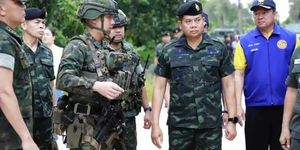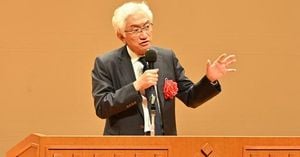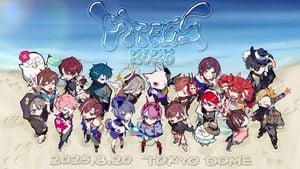Salwan Momika, a 38-year-old Iraqi refugee known for his controversial public demonstrations, was shot and killed on January 29, 2025, during a live stream broadcast from his home in Södertälje, Sweden. The incident has raised alarm about the intersection of free speech and national security, especially as it follows his provocative actions of burning copies of the Quran, which had previously sparked international outrage.
The shooting took place around 11 p.m., shortly after gunfire was reported from Momika's apartment. According to Swedish media, the broadcast was abruptly stopped when police arrived at the scene (reflected by the rapid response). Authorities quickly apprehended five men suspected of involvement, varying between the ages of 20 and 60. It has been reported by the tabloid Expressen, most of these suspects are residents of Södertälje and may be connected by familial ties.
Momika was well-known for inciting racial hatred through his public demonstrations against Islam, which had drawn significant attention and scorn from Muslim-majority nations. His actions particularly infuriated many, leading Sweden's government to raise its terror alert level to four out of five following his Quran burnings earlier. Political reactions to Momika’s assassination reflect the tension between preserving democratic freedoms and ensuring safety from external threats.
"I can assure you the security services are deeply involved because there is obviously a risk of connection to foreign power," stated Prime Minister Ulf Kristersson during a press conference, addressing concerns over possible foreign influences on the violence. The Deputy Prime Minister, Ebba Busch, condemned the murder as "a threat to Sweden's democracy," highlighting the challenges faced by the nation amid rising incidents of religious provocation.
The assassination marks another chapter in the bitter backlash against Momika's vocal criticisms of Islam. He gained notoriety particularly after his Quran burnings stirred widespread protests. Interestingly, the public demonstrations had prompted threats from jihadist groups, contributing to heightened scrutiny from security agencies not only within Sweden but globally.
Before relocating to Sweden, Momika faced severe challenges back home. Born to an Assyrian Catholic family from Qaraqosh, he later joined the Assyrian Patriotic Party amid the turmoil of sectarian violence between 2006 and 2008. Upon seeking refuge, he was granted temporary asylum; unfortunately, his residence permit was revoked amid allegations of inaccuracies within his asylum application, which included controversial claims about alleged affiliations with armed groups.
Local and international reactions to his actions have been varied but notable. The condemnation went beyond Sweden’s borders, especially from countries like Turkey and Iran, which have expressed outrage at incidents involving Quran burnings. This tension escalated to the point where Turkey temporarily halted discussions over Sweden’s NATO membership because of these provocations.
Despite police protection offered during public appearances, it appears Momika lacked adequate security measures at his home, which raises questions about the protection provided to individuals who may be at risk due to their actions or beliefs. His lawyer, Anna Roth, previously confirmed Momika was aware of threats to his life, stating there was "a price on his head." This statement emphasizes the need for heightened vigilance when dealing with individuals who challenge powerful sentiments.
The police continue to investigate the murder, focusing on any potential connections these suspects may have with foreign entities. The incident adds to the growing concern within Sweden about religious extremism and national security. Security agencies have already highlighted claims of foreign governments infiltrated within local criminal networks, attempting to exert influence through violence against critics.
Momika’s assassination signifies the broadening rift between freedom of expression and safety, particularly for individuals engaging in contentious speech acts. The Swedish Security Service is monitoring the situation closely as it assesses the impact this murder may have on national security, reflecting the delicate balance between protecting free speech and ensuring public safety.
Sweden’s path forward will require serious reflection and perhaps reform of how controversial figures like Momika are treated under the law and what protections are afforded to them. The complexity of this situation reveals challenges not just for Sweden but for all democratic societies grappling with similar tensions between freedom of speech, security, and cultural sensitivities.



